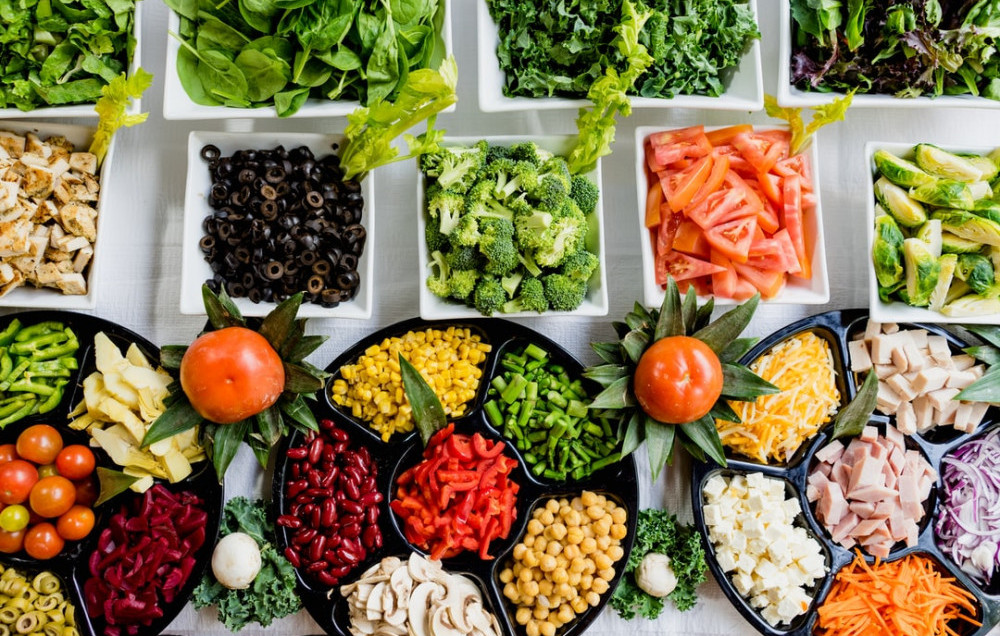The Health Benefits of Pickled Foods: A Delicious Path to Better Health

Introduction to Pickled Foods
Pickled foods are a culinary delight that have persisted through centuries across various cultures. They are created through the process of preserving fruits, vegetables, and even meats in a solution of vinegar, salt, or brine. This method is not only a way to extend the shelf life of perishables but also a means to infuse them with unique flavors, textures, and nutritional properties. The art of pickling has historical significance in many societies, with each culture developing its traditional recipes that reflect local ingredients and preferences.
The pickling process typically involves the fermentation of food in an acidic solution that encourages beneficial bacterial growth. Fermentation enhances the nutritional profile of pickled items, infusing them with probiotics that support gut health. Common ingredients include cucumbers, radishes, carrots, cabbage, and a variety of spices and herbs. From dill to garlic and mustard seeds, these additional components create a multitude of flavor profiles, allowing for a rich variety of pickled foods available today.
Nutritional Profile of Pickled Foods
Pickled foods, often celebrated for their unique flavors and crunchy textures, also offer notable nutritional benefits. The pickling process involves the preservation of various vegetables and fruits in a solution of vinegar, salt, or sugar, which can enhance the bioavailability of certain nutrients and introduce beneficial attributes. One of the key nutritional components found in pickled vegetables is vitamin K. This fat-soluble vitamin plays a crucial role in blood clotting and bone health, making pickled options a valuable addition to a balanced diet.
Additionally, pickled foods are a rich source of vitamin C, a powerful antioxidant that supports immune function and skin health. The process of pickling, particularly when using vinegar, can help retain much of the original vitamin content of the fresh fruits and vegetables. Another significant health benefit of pickled foods arises from the presence of probiotics, particularly in fermented varieties such as kimchi and sauerkraut. These beneficial bacteria promote gut health, enhance digestion, and can even bolster the immune system.
Moreover, the minerals found in pickled foods, including potassium and magnesium, contribute to overall health. Potassium is essential for heart health and maintaining proper muscle function, while magnesium plays a vital role in several biochemical reactions in the body, including energy production. It is important to note, however, that some pickled varieties may be high in sodium due to the brining process. Therefore, moderation is key, especially for individuals monitoring their sodium intake. Despite this, the combination of vitamins, minerals, and probiotics found in pickled foods makes them a nutritious option worth considering for those seeking to enhance their diet.
Probiotics and Gut Health
Fermented pickled foods, such as sauerkraut and kimchi, are rich in probiotics, which are live microorganisms that provide a multitude of health benefits when consumed. These beneficial bacteria are crucial in maintaining a balanced gut microbiome, which consists of trillions of microorganisms residing in the digestive tract. A healthy gut microbiome plays a vital role in digestion, nutrient absorption, and overall health.
Probiotics found in fermented pickled foods can significantly enhance digestive health. They work by breaking down food components that may otherwise be difficult to digest, thus facilitating smoother digestive processes. By fostering a balanced microbiome, these probiotics help alleviate digestive issues such as bloating, gas, and constipation. Furthermore, regular consumption of fermented pickled foods introduces a diverse array of beneficial bacteria into the gut, which can outcompete harmful pathogens, thereby improving gut integrity and function.
In addition to aiding digestion, probiotics contribute to a stronger immune system. A considerable portion of the immune system is located in the gut, which underscores the importance of gut health in overall wellness. By enhancing the microbial balance, probiotics promote a more robust immune response, making individuals less susceptible to infections and illnesses. They also produce short-chain fatty acids that provide nourishment for the intestinal lining, reinforcing the body’s defense mechanisms.
Moreover, emerging research suggests that a healthy gut microbiome may influence mental health and mood. The gut-brain axis, which is the communication network linking the gut and the brain, indicates that the gut microbiome can impact emotional regulation. Therefore, incorporating fermented pickled foods into one’s diet not only supports digestive health but may also contribute to improved mental well-being. This multifaceted impact of probiotics emphasizes their importance as a part of a balanced, health-promoting diet.
Boosting the Immune System
Pickled foods are not only a delicious accompaniment to meals but also offer significant health benefits, particularly in boosting the immune system. One of the primary advantages of consuming pickled foods is their richness in antioxidants. These beneficial compounds play a vital role in combating oxidative stress, a condition that arises from an imbalance between free radicals and antioxidants in the body. By consuming pickled foods, individuals may bolster their overall antioxidant intake, which is essential for maintaining a robust immune system.
The fermentation process involved in creating pickled foods also contributes to their immune-boosting properties. During fermentation, beneficial bacteria, such as probiotics, are produced. These probiotics have been shown to enhance gut health, which is directly linked to the immune system. A healthy gut flora not only aids in digestion but also serves as a barrier against pathogens, thereby enhancing the body’s ability to fend off illnesses. Incorporating pickled vegetables, such as sauerkraut and kimchi, into one’s diet can thus support the growth of these beneficial microorganisms.
Moreover, various pickled foods are rich in vitamins and minerals, such as vitamin C, vitamin K, and zinc, all of which are crucial for proper immune function. Vitamin C is particularly known for its role in supporting white blood cell activity, which is essential for an effective immune response. Meanwhile, zinc aids in the development of immune cells and has been linked to improved resistance to infections.
Overall, by integrating a variety of pickled foods into a balanced diet, individuals not only enjoy enhanced flavors but also contribute to improved antioxidant levels and gut health. This synergistic effect can lead to a strengthened immune system and better resilience against illnesses.
Weight Management and Appetite Control
In recent years, there has been growing interest in the role of pickled foods in weight management and appetite control. Many varieties of pickled vegetables, such as cucumbers, carrots, and radishes, are low in calories, making them a formidable addition to any weight-loss plan. The low-calorie nature of these foods allows individuals to enjoy larger portions without significantly impacting their daily caloric intake.
Furthermore, pickled foods often contain a considerable amount of dietary fiber, which is essential for regulating appetite and promoting feelings of fullness. Dietary fiber slows down digestion and helps stabilize blood sugar levels, thereby reducing the likelihood of sudden cravings and overeating. A diet rich in fiber also encourages a healthy gut microbiome, which has been linked to better weight management outcomes.
In addition to their low caloric count and high fiber content, the tangy taste of pickled vegetables may also lead to enhanced satiety. The acidity of pickled foods can heighten the sensory experience of eating, thereby making small portions more satisfying. This can be particularly beneficial for those who struggle with portion control, as the unique flavors of pickled foods can reduce the need for larger servings of less flavorful options.
Incorporating pickled foods into meals as a side dish or salad ingredient not only enhances flavor but can also contribute positively to overall weight management efforts. Thus, for individuals seeking to maintain a healthy weight, embracing the crunchiness of pickled vegetables might be an effective and enjoyable strategy. By combining their low-calorie nature, high fiber content, and ability to promote satiety, pickled foods emerge as a legitimate ally in the pursuit of better health, particularly in managing weight.
Blood Sugar Regulation
Pickled foods have gained attention not only for their unique flavors but also for their potential health benefits, particularly concerning blood sugar regulation. One of the primary ingredients utilized in the pickling process is vinegar, which has been widely studied for its impact on glucose metabolism. Research indicates that vinegar may enhance insulin sensitivity, allowing the body to process glucose more efficiently. This is particularly relevant for individuals struggling with insulin resistance, a common precursor to type 2 diabetes.
Several studies suggest that the consumption of vinegar before meals can lead to a notable decrease in postprandial blood glucose levels. For instance, participants who consumed vinegar alongside carbohydrate-rich meals exhibited significantly lower blood sugar spikes compared to those who did not. This effect may be attributed to vinegar’s ability to slow gastric emptying, thereby moderating the rate at which glucose enters the bloodstream. Additionally, pickled foods rich in vinegar can enhance satiety, helping individuals manage their overall caloric intake, which is a crucial aspect of blood sugar control.
Furthermore, the presence of beneficial probiotics in certain fermented pickled foods may contribute to improved gut health, which has been linked to better metabolic outcomes. A healthy gut microbiome can positively influence insulin sensitivity and glucose metabolism, making fermented pickled foods an excellent choice for those aiming to maintain stable blood glucose levels. However, it is important to note that while incorporating pickled foods can be beneficial, they should be part of a balanced diet and not relied upon as a sole therapeutic solution for diabetes management.
Heart Health and Pickled Foods
Maintaining heart health is paramount in today’s fast-paced world, and an often overlooked ally in this endeavor may be pickled foods. Certain varieties of pickled foods, particularly those enriched with omega-3 fatty acids, can contribute positively to cardiovascular wellness. Common examples include pickled herring and salmon, which not only provide a tasty addition to meals but also deliver essential nutrients beneficial for heart health.
Omega-3 fatty acids play a crucial role in managing triglyceride levels, reducing overall cholesterol, and promoting a healthy heartbeat. The anti-inflammatory properties associated with these healthy fats further underscore their protective effects against heart disease. Incorporating pickled fish into a balanced diet might be a straightforward approach to bolstering one’s intake of these vital nutrients.
In addition to omega-3-rich options, many people may favor lower sodium pickled foods as alternatives to their higher-sodium counterparts. High sodium intake is often linked to increased blood pressure, a significant risk factor for heart disease and stroke. As consumers become more health-conscious, the availability of reduced sodium pickles and fermented vegetables, such as pickled cucumbers and cabbage, offers healthier alternatives without compromising flavor. These options allow for greater dietary variety while reducing detrimental sodium levels.
It is also worth noting that regular consumption of fermented pickled foods can promote gut health, indirectly supporting heart health. A healthy gut contributes to better nutrient absorption, including those necessary for cardiovascular support. With this in mind, the nutrient-dense profiles provided by various pickled foods align well with the goal of maintaining optimal heart health.
In conclusion, incorporating pickled foods that are rich in omega-3 fatty acids and lower in sodium can be a flavorful path toward achieving better heart health. Their potential benefits reiterate the importance of including these delectable options in a balanced diet.
Culinary Uses and Creative Ways to Incorporate Pickled Foods
Pickled foods have gained popularity not only for their health benefits but also for the distinctive flavor profiles they bring to various dishes. Their versatility allows cooks and food enthusiasts to experiment with a wide range of culinary applications. Incorporating pickled foods into your meals can enhance taste and provide a nutritious boost. Here are several creative ideas for using pickled ingredients in everyday cooking.
One of the simplest ways to enjoy pickled foods is by adding them to salads. Pickled cucumbers or radishes can offer a tangy contrast to fresh greens, while pickled onions add a delightful crunch and vibrant color. You can create a zesty coleslaw by incorporating pickled cabbage, which not only adds depth of flavor but also introduces beneficial probiotics to the mix.
Sandwiches and wraps also become more interesting when pickled ingredients are included. Pickled jalapeños can contribute a spicy kick, whereas relish or pickles can enhance the classic flavors of a traditional deli sandwich. For a gourmet touch, consider making a banh mi – a Vietnamese sandwich featuring pickled carrots and daikon radish for a refreshing crunch that balances savory elements.
For those looking for quick and healthy snack options, pickled foods shine. Serve pickled vegetables such as asparagus or green beans alongside cheese platters for a sophisticated appetizer, or enjoy them straight from the jar for a low-calorie, nourishing snack. Additionally, incorporating them into your charcuterie boards can elevate a simple gathering with their vibrant colors and complex flavors.
Furthermore, experiment with cooking by using pickled ingredients in stir-fries or grain bowls, where they can add an unexpected and pleasing flavor dimension. Pickled garlic or ginger can lend their unique tang to cooked dishes, enhancing everything from sauces to marinated proteins. The potential applications are endless, making pickled foods a delightful addition to any culinary repertoire.
Conclusion: Embracing Pickled Foods for Your Health
In recent years, the popularity of pickled foods has surged, and for good reason. Throughout this blog post, we have explored a variety of health benefits associated with incorporating pickled foods into one’s diet. These foods, which have been enjoyed for centuries in various cultures, not only provide unique flavors but also contribute to overall health and wellness.
The probiotic content found in fermented pickled foods can significantly enhance gut health, promoting a balanced microbiome that aids digestion. Improved digestion can lead to better nutrient absorption, which is essential for maintaining energy levels and overall vitality. Furthermore, the presence of beneficial bacteria in pickles may help strengthen the immune system, providing a natural defense against various ailments. In addition to their probiotic benefits, pickled foods also offer essential vitamins and minerals, particularly when prepared with fresh, seasonal produce.
It is also important to consider the versatility of pickled foods. They can be easily incorporated into various dishes, enhancing not only flavor but also nutritional value. From garnishing salads to serving as a side dish, the possibilities are plentiful. However, moderation is key. While pickled foods can be nutritious, they may also contain high levels of sodium. To reap the most benefits, it is advisable to consume them as part of a balanced diet that includes a variety of food groups.
As we reflect on the health benefits discussed, it is clear that pickled foods can be a crunchy and flavorful addition to your meals. By embracing these foods mindfully, you can enhance your diet while enjoying the various flavors they bring. Consider trying out homemade pickles or exploring different varieties available in the market, and enjoy this delicious path to better health.

